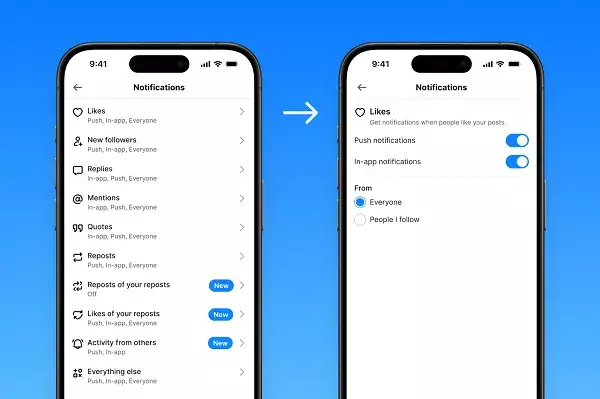In the rapidly evolving landscape of social media, newcomers like Bluesky face a daunting challenge: how to carve out a space amid giants like Twitter (now X) and the flashy popularity of Meta’s Threads. Despite offering similar functionalities, Bluesky lags behind in user engagement, highlighting a persistent dilemma—the battle between innovative ideals and user habits rooted in convenience. While the platform’s recent updates aim to mimic Twitter’s notification system, this incremental progress might not be enough to foster the loyalty needed for long-term growth. Building a truly compelling alternative requires more than feature parity; it demands a fundamental rethinking of what users actually want from their social experience.
Technical Parity Isn’t Enough: The Illusion of Differentiation
The latest enhancements to Bluesky—namely customizable notifications—are a step toward giving users some control over their interactions. These features allow individuals to tailor alerts based on their preferences, aligning with the broader desire for personalization. Yet, such updates merely make Bluesky appear more familiar, essentially replicating core Twitter functionalities. The core issue extends beyond functionality; it ventures into user perception and engagement. Having more options doesn’t automatically translate into increased usage if the platform fails to offer unique, compelling reasons for users to switch or even stay. The trick is not in mimicking existing features but in creating fundamentally different experiences that resonate on a deeper level.
The Myth of Decentralization as a User Magnet
Bluesky’s core promise of decentralization and user control has not yet translated into broader appeal. Many enthusiasts champion such principles, believing that giving users more agency over their data and social space is inherently valuable. However, in practice, most users prioritize simplicity and immediacy. The friction introduced by managing decentralized networks—choosing servers, adjusting privacy settings, or navigating unfamiliar interfaces—acts as a barrier to adoption. Comparative platforms like Mastodon stumble for similar reasons: the promise of control collides with the reality of complexity. Conversely, Threads’ seamless integration with Instagram exemplifies how convenience often triumphs over ideological appeal, contributing to its rapid adoption.
Consumer Psychology: Convenience Over Control
There’s a fundamental human tendency to favor ease and immediacy. People love the idea of having control, but in practice, they seek minimal effort. This discrepancy explains why platforms emphasizing decentralized control often struggle to reach mainstream audiences. While privacy advocates may appreciate the theoretical benefits, everyday users opt for platforms that require less manual configuration. The allure of effortless connectivity—simply clicking a link or logging in through an existing account—is more attractive than wrestling with decentralized settings or long-winded customization options. This reality underscores a critical insight: technological sophistication alone is insufficient to drive adoption; the experience must be intuitive and frictionless.
The Future of Social Platforms: Balancing Innovation with Accessibility
It might be tempting to assume that users will eventually flock to platforms emphasizing transparency and control, but history suggests otherwise. Platforms like Facebook thrived not because of their privacy policies but because they offered effortless social connectivity. To succeed, emerging platforms like Bluesky need to prioritize user experience over technical novelty. Offering features that resonate with human psychology—simplicity, quick access, and community—the “easy button” for social interaction, can be a more powerful strategy than adding complexity. Future innovations should focus on creating environments where users feel empowered without the burden of constant management.
Bluesky’s current trajectory appears to echo a common pattern in social media evolution: the tension between the ideal of decentralization and the pragmatic influence of convenience. Their latest updates, while technically commendable, risk being minor tweaks in a game already dominated by platforms that understand what users truly prioritize. Building a successful social network demands more than mimicking features; it requires reimagining the entire experience from the user’s perspective—removing barriers, reducing friction, and truly understanding that at the heart of social media is the human desire to connect effortlessly. Only then can a new platform hope to transcend the noise and redefine the future of online social interaction.

